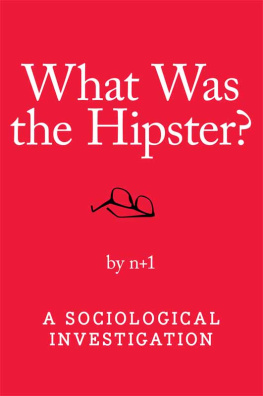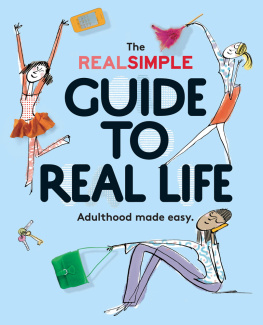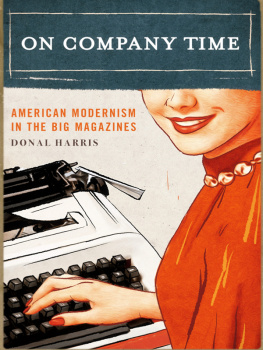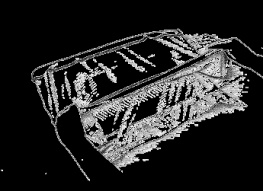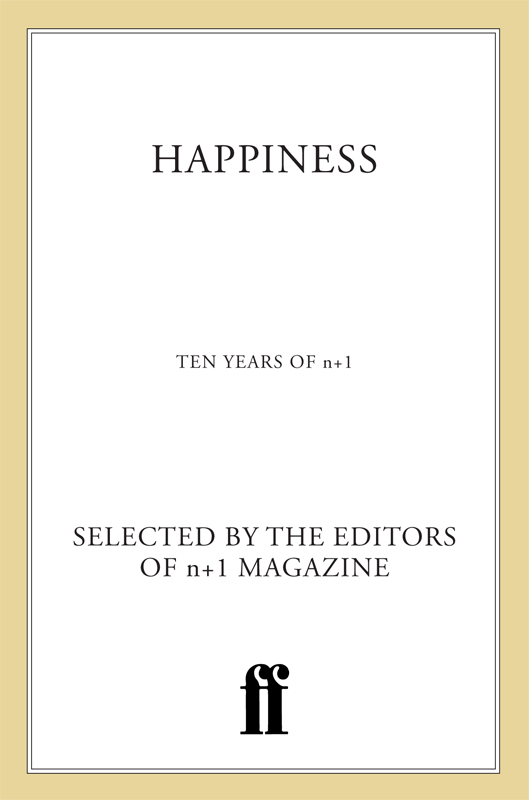Contents
Guide

CONTENTS
Mary Karr
The Editors
Marco Roth
Mark Greif
Benjamin Kunkel
Mark Greif
The Editors
Elif Batuman
Chad Harbach
Emily Witt
The Editors
Wesley Yang
Marco Roth
Rebecca Curtis
The Editors
Lawrence Jackson
Keith Gessen
Kristin Dombek
INTRODUCTION
by Mary Karr
A proper introduction oughta circle the collection like a hostess at a cocktail party, saying a little something nice about everybody. But propriety is not my forte, nor is it the n + ers.
Theyre intellectual outlaws of the first order. They zigzag across the cultural landscape (both highfalutin and pop), scouting for beauty among the young, the unpublished, and unheard of. Hand to heart, I swear the best literary writing in English blooms inside each issue. If they had a sandwich board, Id wear it; if they had a flag, Id wave it.
Not so at first blush.
On a cold morning in 2003 in my Hells Kitchen apartment, twenty-eight-year-old Keith Gessenformer fictioner in the Syracuse MFA program, where I teachshowed up with two of his pals to talk about founding a literary mag.
Gessen was a Russian Jew who had, as far as I could tell, spent most of his time at Syracuse playing hockey. Bespectacled Mark Greif was dark, lumbering, and in the muddy midst of a PhD at Yale. Slim Benjamin Kunkel was laboring on his soon-to-be-big-deal novel Indecision . He was quieter and almost too blondly pretty to look at head-on.
Over bagels, they chatted about the decline of lit crit, The New Republic taking potshots at youngsters, the cult of McSweeneys , how online journalism was leaning in the glib direction of Salon and Slate . Their mag would fix all that. n + , they were calling it.
My judgment was swift as a swinging blade. Boneheaded idea! Publishing itself was circling the drainhadnt even the august Lingua Franca just bitten it? And Partisan Review after seventy years! Those heroes couldnt drum up the requisite dough to pump out pageshow did these yahoos expect to? Waste of time. Nyet , no, nevah.
Then I wrote them a check.
And their vision started to grow on me. They wanted sprawling, ambitious articles you couldnt squash into single sound bites. They were the antivenin to the elevator pitch. They wanted to establish themselves as curious thinkers , not pious knowers .
[Serious] writing about culture has become the exclusive province of bullies, reactionaries, and Englishmen.
(Issue One)
The moral responsibility is not to be intelligent. Its to think. An attribute, self-satisfied and fixed, gets confused with an action, thinking, which revalues old ideas as well as defends them. Thought adds something new to the world; simple intelligence wields hardened truth like a bludgeon.
(Issue One)
As they bundled into coats, I offered the ultimate giftmy own writing! I would deign to permit the likes of them to publish, say, an essay by moi . Which idea they failed to fall on like wolves. Were they studying their feet? Shifting their eyes from mine? Ultimately, they demurred.
Youre too well-known, Keith said.
Shocking, this. Many (most?) little mags court the established scrivener, maybe even publish medium-shitty work by said writer so as to flaunt her name in the contents. These n + ers sought quality from the ranks of the invisible. The sheer quality of the work would magnetically draw readers to the unknown. That they believed this made them possibly the dumbest young literary humans Id met in a while.
Soon I was at the Pink Pony at a benefit hosted by none other than The New York Review of Books s Barbara Epstein. The other editorsMarco Roth, Allison Lorentzen, Chad Harbachwowed me much as the first phalanx had. Money was being scraped up. Gessen was sleeping on the sofa of the neoghetto office downtown, and contributors were being paid off in beer.
Still, I gnawed my thumbnail before the first issues burst into print to solid acclaim.
The editors took on lesser mags without being snarky. They opposed the war in Iraqthis was in 2004, when such an opinion was not yet mandatory in New Yorkand they were willing to stand up to the people who cheered for it.
Mark Greifs Against Exercise still hangs among the brightest stars in my nonfiction constellation. In an age when food and body worship have become near-religious among our educated classes, Greif denigrates the whole practice by making it worthy of Kafkas penal colony.
Best of all, n + ponied up with the promised luminary unknownsthose Susan Sontags and George Orwellsto-be emerging like sirens from the fog of oblivion into print.
Elif Batuman took on Isaac Babel with a voice I got a girl crush on right off. Batuman had the wise charm of Hannah Arendtif Arendt wore a red rubber nose and floppy shoes.
The millennium edition of Tolstoy fills a hundred volumes and weighs as much as a newborn beluga whale
Comparing Tolstoys works to Babels is like comparing a long road to a pocket watch.
Batuman has long since been discovered by The New Yorker et al. A lot of their writers have. And a magazine that began as white/Jewish and very male has become less white, and a lot less male.
Ten years in, I still find the most rereadable writingColeridges old test was rereadingin n + .
There are only two things wrong with this assemblage.
One, its not big enough. Wheres Nikil Savals history of the office, or Carla Blumenkranzs history of the website Gawker? Wheres Elizabeth Gumport on feminism, privacy, and Chris Kraus; Christopher Glazeks attack on the prison-industrial complex; or Dayna Tortoricis hilarious (unsigned) editorial denouncing the online rage machine? The anthologist has stinted. A proper anthology should weigh as much asin Batumans metaphora big-mouthed bass at least.
And two: after ten years, this magazine remains too much of a damn secret. The editors have proved pretty good at editing; at promoting this thing, theyre as clueless as they were in 2003. The concocters of this fantastic literary endeavor still have to hustle to grind out issues. Contributors are paid, but barely. This brave, hard-won offering to the world needs many more people reading it. They will be those who believe in alchemythat adding the fresh mystery of beautiful, relevant writing (n) to the lone reader (1) is to forge a coin of untold value, precious, imperishable.
THE INTELLECTUAL SITUATION (HAPPINESS)
The Editors
A history of happiness is a funny thing, since, for a long time, happiness was viewed as merely the absence of history. No one lived for happiness the way we do today. In an individual life, it would have been a lack of catastrophic events. As the goal of an era, or civilization, it would have meant stasis, absolutely nothing happening. If you did hit the blank-time jackpot of happiness, the best thing to do was drop dead.
Then came modernity. Periods of happiness are blank pages in history, Hegel declaredsummarizing the ancient viewand proceeded to spill ink all over them. The more optimistic savants of the era began writing happiness directly into history, into life. They made happiness the goal of civilization, and of the individual living in civilization.
The young Saint-Just was probably exaggerating for rhetorical effect when he declared, in 1792, Happiness is a new idea in Europe. But he wasnt wrong. He should have looked across the ocean, too. From the American and French Revolutions forward, engineers of happiness came into firm control. Ideas like the pursuit of happiness and the greatest happiness for the greatest number migrated from the academies and drawing rooms of eighteenth-century thinkers to the Continental Congress and the National Assembly. While cheerful Bentham doodled plans for his perfect prison, gloomy Carlyle recognized utility and its pleasures as the idols of the age.


